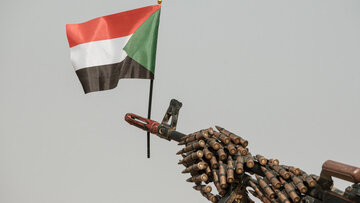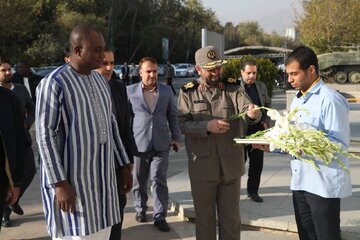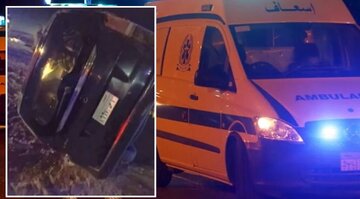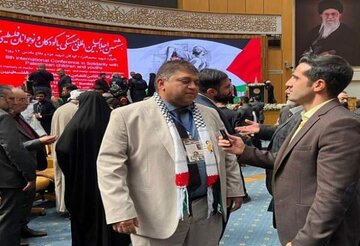A youth was killed when police officers stormed two controversial mosques, Masjid Musa and Shakinah, to flush out jihadists.
During the dawn operation yesterday, police recovered eight hand grenades, a pistol with six bullets, an assortment of other weapons and Jihad literature and propaganda in CDs and DVDs.
Police also displayed three laptops, 11 mobile phones and bomb-making materials, including chemicals, iron pipes, nails and marbles that are mixed to manufacture improvised explosive devices (IEDs).
Mombasa police boss Geoffrey Mayek said three grenades were recovered in Sakina and five in Musa.
Mayek said the youth was shot dead as he tried to hurl a grenade at the officers who raided Masjid Musa at 3am.
Mayek said the deceased was among radical youth living in the mosques and allegedly behind the recent spate of gun attacks in the coastal city.
"We received information that the two mosques are being used as armoury, and we managed to arrest 24 youths who were sleeping in the mosque. Unfortunately, one of them was fatally wounded," said Mayek.
More than 200 other youths were arrested within Majengo in the operation conducted by a combined team of GSU, regular and anti-terrorism police.
Mayek said the operation was conducted with caution and with restraint, to avoid a confrontation such as the one that occurred on February 2 this year at Masjid Musa, when armed police raided the mosque and arrested 129 people, including women and minors.
The mosque had been taken over by youth and was considered a hotbed of radical teaching and recruitment for al Shabaab.
That police raid created uproar and drew widespread criticism.
The 24 youths arrested yesterday are in their early 20s and were transferred to the Port and Central police stations for interrogation to establish, among other things, if they have links with al Shabaab militants.
The mobile phones and laptops were handed over to detectives from the crime intelligence unit and cyber crime unit for data analysis with the possibility of establishing any links to terror networks in the country.
Mombasa deputy county commissioner Mahmoud Salim urged the committees and owners of the two mosques to appoint a legitimate committee to run their affairs.
Salim said the government will not allow the youths to control the mosques after they ousted the rightful imams and committee members.
He declined to comment when asked whether the state will contemplate shutting down the two mosques.
He defended the police decision to enter the mosques, which some say is contrary to Islamic teaching.
Last month, Muslim youths raided Swafaa Mosque and ejected its moderate imam and management committee.
In December last year, youths ejected Imam Sheikh Mohamed Idris of the Council of Imams and Preachers of Kenya (CIPK) from the troubled Sakina Mosque and renamed it Masjid Mujahideen.
The leaders of the al Shabaab refer to Muslim fighters as 'mujahideen' who wage holy war, or Jihad, against their enemies. Mujahideen is an Arabic word that refers to one who engages in Jihad.
Sheikh Idris was later shot dead by unknown assailants as he walked to a mosque for morning prayers outside his house in Likoni.
Yesterday's raid comes at a time when Inspector General of Police David Kimaiyo had instructed imams in mosques to eject radical youths who had forced out some imams perceived to be government sympathisers.
Police believe the two mosques are being used to radicalise youths and have further stated that young people are being routinely recruited into al Shabaab.
In the 1990s, Muslim leaders of the now-defunct Islamic Party of Kenya (IPK), including Sheikh Mohamed Khalifa, former nominated MP Sheikh Mohamed Dor and the late Sheikh Aboud Rogo, delivered radical teachings and sermons against the Moi regime.
The clerics later dropped their hardline radical stand, forcing Sheikh Rogo, who was later shot dead while driving near Pirates Beach in 2012, to seek refuge at the then Masjid Musa from where he delivered virulent sermons that advocated Jihad.
Human rights groups in Mombasa, the International Crisis Group and the Institute for Security Studies attributed increased radicalisation and intolerance to exacerbated feelings of marginalisation and persecution, particularly among the youth of the Muslim minority.
/129
18 November 2014 - 08:02
News ID: 652063
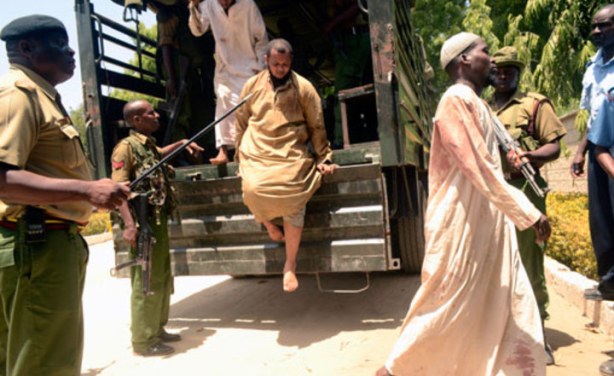
A youth was killed when police officers stormed two controversial mosques, Masjid Musa and Shakinah, to flush out jihadists.

